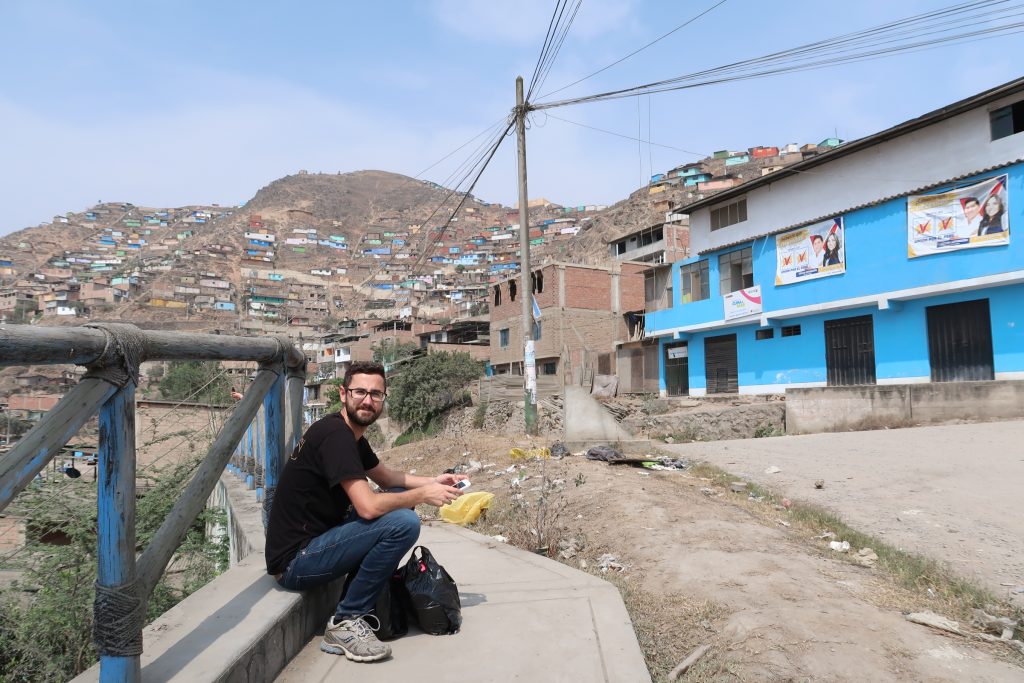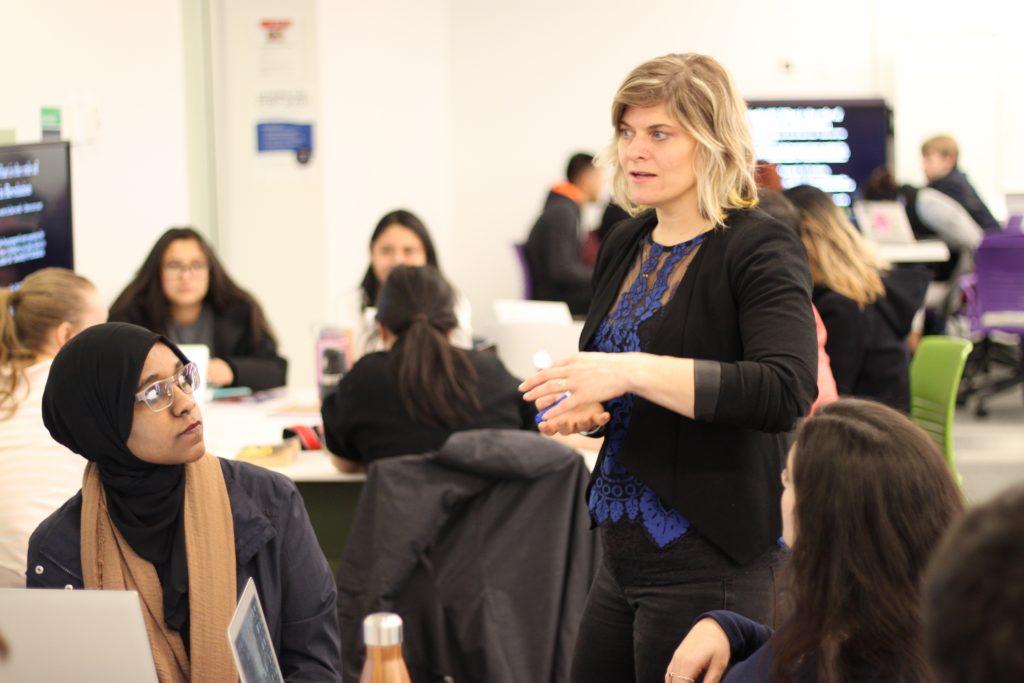Contents:
- How can Hispanic Studies expand your horizons?
- What career options are out there?
- What can you expect from the Spanish program?
- How do you declare a Major or Minor?

How can Hispanic Studies expand your horizons?
Become a truly global citizen by joining a community of 500 million Spanish speakers worldwide.
Designed to be immersive, practical and fun, our courses give you a strong grasp of the Spanish language through hands-on learning and real-world projects that can provide opportunities to make an impact, both locally and abroad. From Madrid to Mexico City, Lima to Los Angeles, Spanish is the language of commerce and culture, passion and politics, and boundless other opportunities. Don’t leave it to mañana.


Lawrence Book McKnight, UBC alumnus, working on community projects for under-resourced areas in Lima, Peru as a Program Manager.
What career options are out there?
Graduates will develop transferable skills that can be applied to a variety of contexts.
Our graduates are equipped for any field in which connection and internationalism count: from business to law, education to development work, journalism to public relations, and diplomacy to tourism. These include careers in:
|
|
Many students find that a Major or Minor in one of our programs pairs well with other specializations, including International Relations, Political Science, Geography, Human Resource Management and more.
You will develop transferable skills that can be applied to a wide variety of fields. These skills include:
|
|


What can you expect from the Spanish program?
UBC offers Spanish language, literature, and culture courses for students at all levels, from absolute beginners to native speakers.
We teach the language in the context of common tasks and situations, so that it is immediately useful and memorable. Tandem programs, community interaction, and opportunities to study abroad enable real-world communication from the start. We also introduce you to Spanish and Latin American customs, traditions, writing and film, to enhance your cultural awareness and sense of global citizenship.
Advanced courses focus on particular aspects of language or culture — from translation, to the Latin American novel, to Spanish film — and explore questions surrounding gender, colonialism, modernization, and separatism. From “Despacito” to Don Quijote, lyric poetry to urban graffiti, and Che Guevara to Pablo Picasso, we offer you new ways of seeing the world and situating yourself in it.
A Spanish Major or Minor teaches you about connection, communication, and community. It often pairs well with majors or minors in other languages, or with subjects such as International Relations, Political Science, Geography, History, Anthropology and more.
What better way to learn the Spanish language and culture than to immerse yourself in a Spanish-speaking country for several weeks?
- Go Global allows students to study abroad, bringing course content to life with hands-on learning.
- UBC has study exchange agreements with 13 universities in Central and South America, and 7 in Spain.
From Hispanic film screenings to tapas tasting nights, there are plenty of opportunities for students to deepen their cultural awareness and linguistic skills through events organized by the Department and by student clubs and associations. The Spanish program also has links with many top-ranked programs across Canada, the Americas, and Europe, paving the way for further collaboration.
- The Department of French, Hispanic and Italian Studies offers free tutoring and educational support to students through the Learning Centre.
- The Department also hosts language conversation tables and cultural events through the Cultural Club, giving students a chance to further their exploration of language and culture outside of the classroom.

How do you declare a Major or Minor?
You can declare your specialization in one of two ways:
Steps:
- Login to the Student Service Centre (SSC) and select your campus and session.
- Select specialization from the browse menu to see a list of all degree programs with specializations.
- Select your degree program.
- Select your area of specialization from the subject list.
- Click add spec.
- If the specialization indicates that you must contact the department, you will not be able to declare it online. Contact your academic advising office for details.
- (To make changes: use the switch spec. button)
Arts Advising can adjust your specialization on your behalf by filling out their online form.
Arts Advising only accepts online specialization requests outside of the registration period (registration runs from mid-June to mid-September). During registration periods, declare your specializations via the SSC.
For further assistance, contact an advisor.


